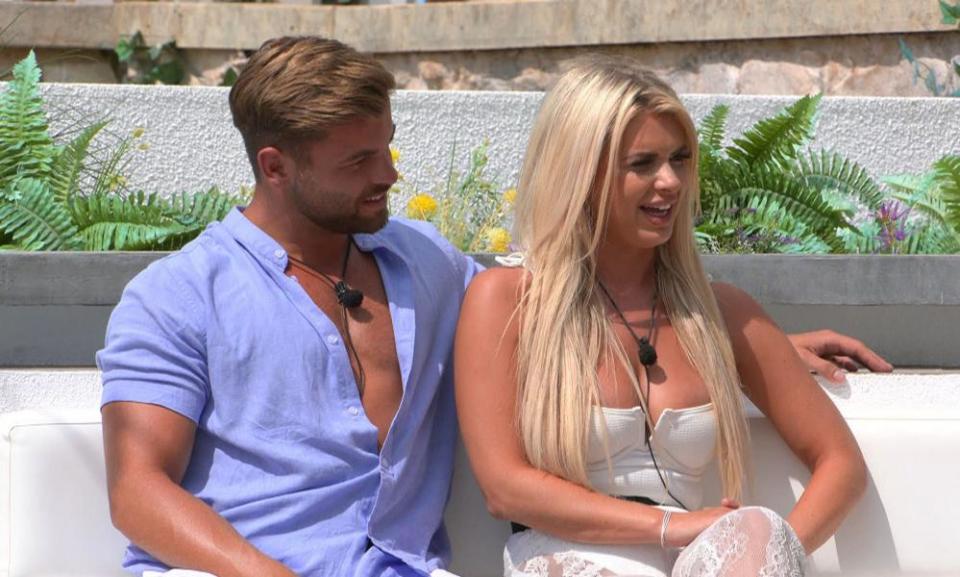Can Netflix’s Insiders put the reality back into reality TV?
People often accuse reality TV contestants of lacking self-awareness, but the opposite is usually true. Most are outrageous, offensive and, at times, embarrassing because they know it’s what will lead them to be cast. It’s an issue plaguing the genre; cast members are often pseudo producers, feeding an audience the contrived drama they think it wants. Ironically, this is far from what many viewers actually want: authenticity.
A show that aims to tackle this criticism head on is Insiders, Netflix’s first Spanish original reality show, which will probably gain an international audience after the success of the streamer’s foreign-language shows. Insiders is also hosted by Money Heist actor Najwa Nimri, another draw for global viewers.
With reality fans tiring of fakery and contestants playing up to the cameras, Insiders offers a genius solution. Its 12 contestants have been led to believe they’re auditioning to take part in a Big Brother-style series but really, the show began when they set foot on set. While participants believe they’re only being filmed in certain rooms, their living quarters in fact boast 250 hidden microphones and 70 hidden cameras.
Along the way, they encounter the usual producer-meddling and mind games, including a chart that pits them against what the show deems the “perfect reality show contestant” (decided, of course, by bogus software). Moreover, the “good cop, bad cop” producers are actually paid actors. It does, in all honesty, become convoluted; the commitment from the real producers and “the producers” to maintaining the lie, means there are a few confusing subplots. It’s difficult to ascertain exactly what the cast are supposed to do to win (there is €100,000 at stake, but it’s initially unclear whether this is a popularity contest, or a game in which whoever realises comes out on top).
Even so, it is an undoubtedly interesting premise, not least when we see the cast discussing the show and their behaviour on it. The extra distance leads to conversations about how they intend to “play the game”, and how they truly feel about their fellow contestants. When they talk off camera, the usual bitchiness goes beyond being two-faced; you see them weighing up the value of conflict and different relationships, gauging what producers and, ultimately, viewers, believe makes for compelling viewing. They are well aware of the value of showmances, and arguments are high on the agenda, too. In fact, in many ways, Insiders could have worked as a serious documentary about just how inorganic such contests have become.

While viewers have long known that contestants are liable to performing, here we see the switch from acting normal to just acting happen in real time. In this year’s Love Island, when Liberty Poole pulled up Jake Cornish for his staged behaviour in front of the cameras, she broke an unspoken rule of reality TV by addressing it. “So a little TV knowledge for you here … When filming you’re strictly not aloud to talk about ‘being on camera’ or anything related to being on TV,” wrote former Islander Sam Gowland on Twitter, adding that Cornish “must have been playing up to the camera for some time” for the show to air the scenes.
Insiders is almost too preoccupied with the “gotcha” element of the format to do anything truly groundbreaking with it. This shows how much innovation is needed in the genre. As viewers, we are far too aware of how self-aware contestants are and would do anything for the anthropological, Attenborough-esque reality TV heyday of watching a bunch of nobodies in the Big Brother house.
I anticipate we’ll see more shows attempting to catch out primed, prepped cast members who are either already influencers or have hopes of becoming one, and grew up on a diet of reality TV. In Too Hot Too Handle’s second series, contestants were told that they were going on a fictitious programme called Parties in Paradise, to obscure the central celibacy plot. The singles thought they were going on a debauched holiday, but instead had to forgo sex in order to win $100,000. While it worked a treat – the cast were genuinely none the wiser, and it was a hit with viewers – obviously it’s difficult to keep up such a ruse. As for Insiders, if there’s a second series, or a US remake, will they be able to trick contestants a second time around? We may well see cast members faking it for two sets of cameras in series two.

 Yahoo Movies
Yahoo Movies 
